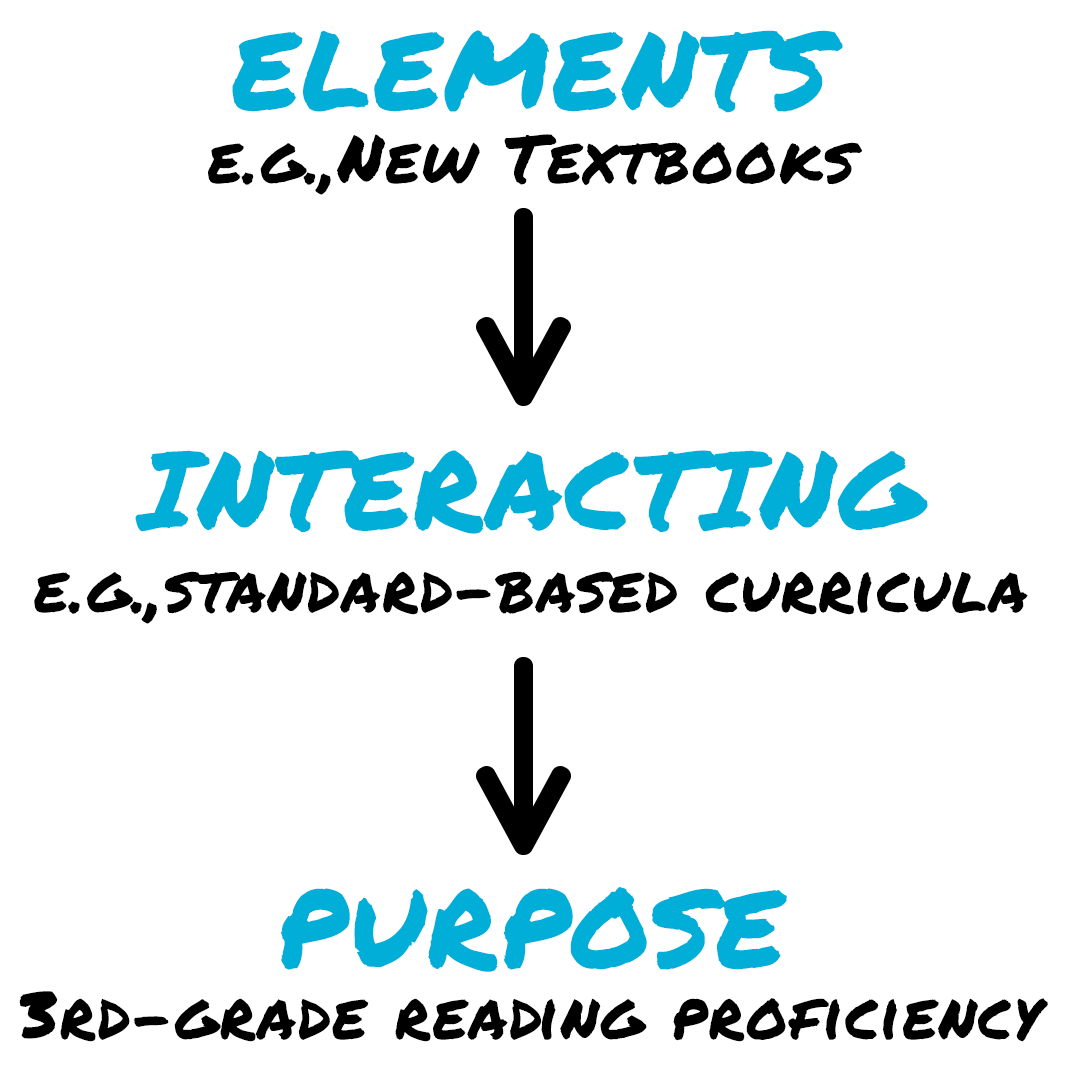Flip the Script
After three decades of literacy education work, we at Unite for Literacy have come to believe that our current education model cannot and will not make the transformational change that many of us are seeking—to get a majority of our students reading on grade-level and then going on to become avid, lifelong readers.
Why not? We believe the answer lies within the widely accepted purpose of literacy education: to get every student reading at or above a proficient level by the end of 3rd grade. Third grade is the benchmark because from 4th grade on, students begin reading to learn rather than learning to read. They must know how to read well to realize academic success after the 3rd grade.
But what if we…
Change the purpose of literacy education?
We’ve seriously considered this question, and to help us answer it, we turn to systems design experts.
In its simplest form, a system is a group of elements interacting for a purpose.
Researchers who analyze systems believe in the power of leverage points—places within a complex system where a small shift in one thing can produce big changes in everything.
For decades, the purpose of literacy education has been narrowly defined into some form of grade level reading—an observable and measurable outcome. With that purpose, efforts to improve outcomes include adjusting the elements, like adding textbooks or standards-based curricula, and to adjusting interactions, like systematic, direct instruction. These adjustments are meant to achieve the purpose of improved grade-level reading. But the catch is, when a purpose becomes a narrowly defined outcome, the system behaves in ways that many of us view as counterproductive.
Let’s flip it
But what if we flip the script? What if we reorder the system so that its leverage points are in ascending order from lowest to highest? If we are seeking big changes in the outcomes our literacy education system produces, this simple graphic reveals why purpose needs to be top of mind.
What if we also redefine the purpose of our literacy education system from achieving grade-level to growing avid readers and lifelong learners? Framing the purpose of literacy education in this way enables us to concentrate our efforts on high leverage points that unlock the fullest potential of our community efforts.





